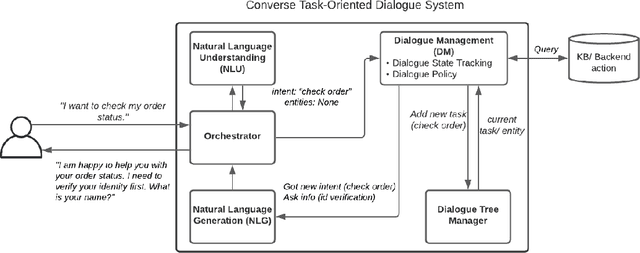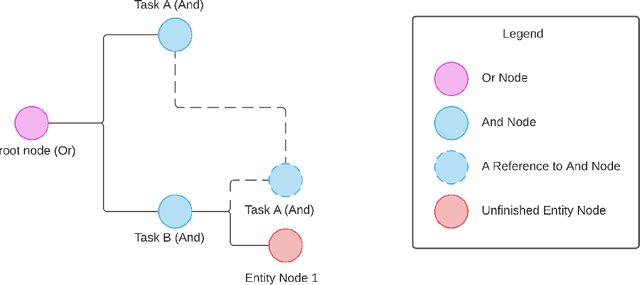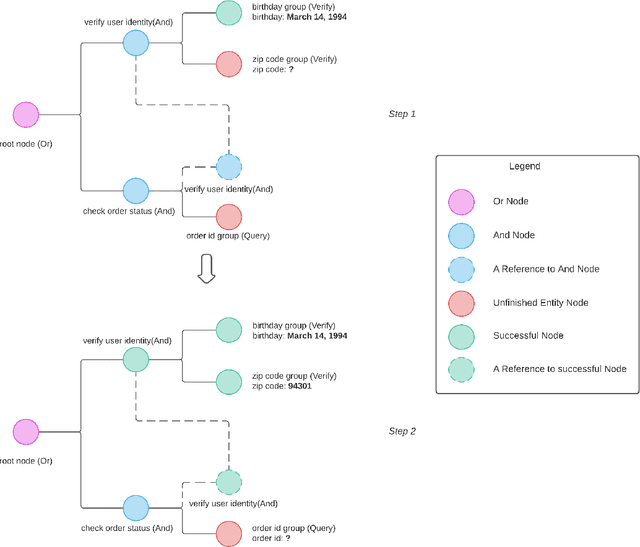Young Mo Kang
Converse: A Tree-Based Modular Task-Oriented Dialogue System
Mar 30, 2022



Abstract:Creating a system that can have meaningful conversations with humans to help accomplish tasks is one of the ultimate goals of Artificial Intelligence (AI). It has defined the meaning of AI since the beginning. A lot has been accomplished in this area recently, with voice assistant products entering our daily lives and chat bot systems becoming commonplace in customer service. At first glance there seems to be no shortage of options for dialogue systems. However, the frequently deployed dialogue systems today seem to all struggle with a critical weakness - they are hard to build and harder to maintain. At the core of the struggle is the need to script every single turn of interactions between the bot and the human user. This makes the dialogue systems more difficult to maintain as the tasks become more complex and more tasks are added to the system. In this paper, we propose Converse, a flexible tree-based modular task-oriented dialogue system. Converse uses an and-or tree structure to represent tasks and offers powerful multi-task dialogue management. Converse supports task dependency and task switching, which are unique features compared to other open-source dialogue frameworks. At the same time, Converse aims to make the bot building process easy and simple, for both professional and non-professional software developers. The code is available at https://github.com/salesforce/Converse.
Fast and Robust Unsupervised Contextual Biasing for Speech Recognition
May 04, 2020



Abstract:Automatic speech recognition (ASR) system is becoming a ubiquitous technology. Although its accuracy is closing the gap with that of human level under certain settings, one area that can further improve is to incorporate user-specific information or context to bias its prediction. A common framework is to dynamically construct a small language model from the provided contextual mini corpus and interpolate its score with the main language model during the decoding process. Here we propose an alternative approach that does not entail explicit contextual language model. Instead, we derive the bias score for every word in the system vocabulary from the training corpus. The method is unique in that 1) it does not require meta-data or class-label annotation for the context or the training corpus. 2) The bias score is proportional to the word's log-probability, thus not only would it bias the provided context, but also robust against irrelevant context (e.g. user mis-specified or in case where it is hard to quantify a tight scope). 3) The bias score for the entire vocabulary is pre-determined during the training stage, thereby eliminating computationally expensive language model construction during inference. We show significant improvement in recognition accuracy when the relevant context is available. Additionally, we also demonstrate that the proposed method exhibits high tolerance to false-triggering errors in the presence of irrelevant context.
 Add to Chrome
Add to Chrome Add to Firefox
Add to Firefox Add to Edge
Add to Edge